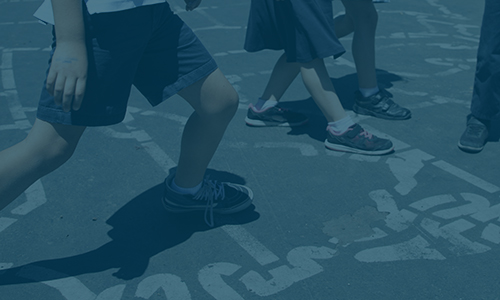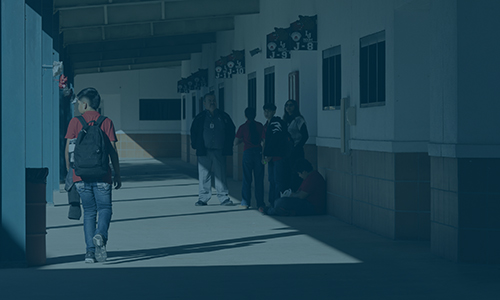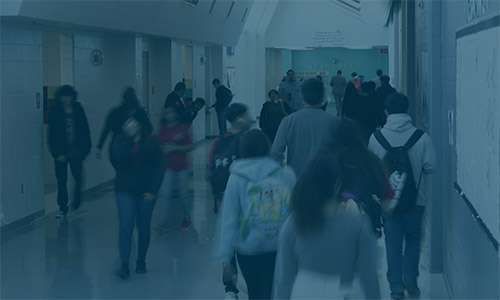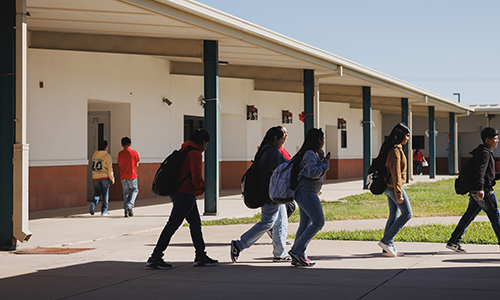Research brief
Effective summer programs: Practical guidance for district leaders
June 2024
By: Miles Davison, Jazmin Isaacs, Michael Gaddis, PhD, Sofia Postell, Ayesha K. Hashim, Susan Kowalski, Karyn Lewis

Description
This report dives into the research on summer programs, their implementation and design, as well as the efficacy of those programs for literacy, math, and social-emotional learning (SEL) outcomes. It also provides recommendations for district leaders to use as a framework for planning and implementing effective summer programming.
See MoreRelated Topics


Lessons in resilience: A playbook for recovery from natural disasters
This research brief is a follow-up report to NWEA’s brief examining the impact of extreme weather disruptions to teaching and learning. This report offers practical strategies and recommendations to school districts for preparing for extreme weather events to recover faster and lessen the impact on students and teachers.
By: Megan Kuhfeld, James Soland
Topics: COVID-19 & schools, Growth, Seasonal learning patterns & summer loss


Post-Pandemic School Closure Trends: Schools Serving Black Students Disproportionately Closed
This NWEA white paper explores the impacts of permanent school closures on communities. Findings suggest that despite challenges facing districts and the increased rhetoric around closures, most districts have continued to keep schools open; however, when schools were permanently closed, all communities are not affected equally: high poverty and high percentage Black students are more likely to close.
By: Jazmin Isaacs, Megan Kuhfeld, Sofia Postell, Ayesha K. Hashim
Topics: COVID-19 & schools, Growth


School’s in for Summer: A Scalable and Effective Post-Pandemic Academic Intervention
New research report looks at the effects of post-pandemic summer school on student achievement and district recovery, how program design and implementation aligned with recommended best practices, and how the scale and impact of summer school compared to other interventions, like tutoring.
By: Emily Morton, Dan Goldhaber, Andrew McEachin, Thomas J. Kane
Topics: COVID-19 & schools, Growth, Seasonal learning patterns & summer loss


Technical Appendix: MAP Growth Specialty School National Dashboard
This is the accompanying technical appendix to the MAP Growth Specialty School National Dashboard providing more details of the data and describing more fully the sample and methods used within the dashboard.
By: Megan Kuhfeld, Daniel Long, Karyn Lewis
Products: MAP Growth
Topics: Growth


Technical appendix for “Hot test days, lower math scores: How heat affects student achievement”
This is the technical appendix to “Hot test days, lower math scores: How heat affects student achievement” research report that examines the impact of environmental temperatures on student performance in math and reading, and whether those effects are more extreme for students in high-poverty schools, where cooling conditions may be less reliable.
By: Sofia Postell, Megan Kuhfeld, Susan Kowalski, Jazmin Isaacs
Products: MAP Growth


Hot test days, lower math scores: How heat affects student achievement
This NWEA research report examines the impact of environmental temperatures on student performance in math and reading, and whether those effects are more extreme for students in high-poverty schools, where cooling conditions may be less reliable.
By: Sofia Postell, Megan Kuhfeld, Susan Kowalski, Jazmin Isaacs
Products: MAP Growth


NWEA’s MAP Growth National Dashboard provides timely trends and data on U.S. student academic achievement and growth for grades K-8. This free public tool supports district leaders, state and federal policymakers, and other education stakeholders in interpreting local data within a broader national and state context. It helps identify areas of strength, shine light on disparities, and ground policy conversations in evidence.
Products: MAP Growth
Topics: COVID-19 & schools, Equity, Growth


